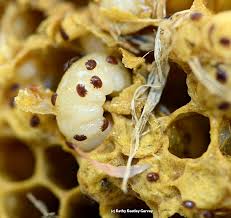Ten Natural Beekeeping Approaches
At our June 4, 2018 meeting, Dr. Dewey Caron gave a talk on. “Responsible Colony Stewardship: June Management/Working Toward Treatment Free Beekeeping.” Dr. Caron is Emeritus Professor, Department of Entomology and Wildlife Ecology at the University of Delaware and an Affiliate Professor in the Horticulture Department at Oregon State University and author […]










